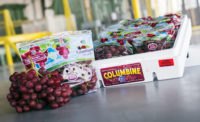The packaging industry is growing. The value of the global packaging services market is forecast to grow from $33.7 billion in 2017 to $50 billion in 2022, according to research from Smithers Pira (smitherspira.com).
How packaging moves from manufacturers to distributors and wholesalers, to retailers and finally into the consumer’s hands, is a complex process—the success of which hinges on several factors, including:
- Strong relationships between everyone involved in the process;
- Efficiency and productivity across the supply chain;
- Ability to use technology to enhance consumer-facing and back office activities; and
- Clear value propositions and competitive differentiation.
Due to the number of moving parts, fulfilling supply and demand within the packaging industry is a delicate balancing act. The industry’s businesses must work in tandem to ensure profitability and longevity.
While there are so many elements involved, it can be difficult to determine which factors are most important to the packaging industry’s future success. Does the current business climate offer more challenges than opportunities? Are firms tackling the former and taking advantage of the latter?
To find out the answer to these questions and more, sales-i surveyed 233 supply chain executives across a range of industries, including packaging and food and drink. The results shed some light on key sales challenges for the supply chain in the present and near future.
Customer acquisition and retention
When asked what their most pressing challenges are for the next 12 months, over half (59 percent) cited identifying and winning new customers as one of their biggest issues, while difficulty in up-selling and cross-selling to existing customers was named as an issue by 38 percent.
Both challenges stem from not knowing how to sell effectively and consistently to customers. No business can be expected to know what potential customers want without continuous insight into the changing wants and needs of its target audience. They also can’t be expected to up-sell to existing customers without sufficient analysis of buying trends.
Skills shortages
A quarter of respondents revealed underperformance of individual sales representatives as a key challenge for the upcoming year. In addition, nearly two thirds (62 percent) of businesses cited a skills shortage in their sales function. There are more touchpoints available to reach customers than ever before, but these various channels can only be as good as the salespeople behind them.
Today, the right technology can help to get them up to speed. Additionally, if technology underpins the sales process, problems can often be tracked and identified quicker, meaning solutions can be prepared by more senior staff. When hiring, it’s important to prioritize tech-minded and data-driven salespeople who can adapt to the new tools available to them.
Embracing digital technology, Industry 4.0, e-commerce
Most of our survey respondents (61 percent) see automation and smart factories as an opportunity for their industry, compared to only 5 percent who see it as a threat. There is still a degree of uncertainty surrounding Industry 4.0, with the rest saying they are ‘not quite sure yet’ of its longer-term impact. Nevertheless, while people have long worried about the potential threat of automation, the packaging industry is clearly more interested in the efficiencies it can create.
Digital technology such as CRM software and data analytics could be crucial to the packaging industry moving to the next level and can really help improve the efficiency of business processes when there are so many different people involved.
Impact of the economy
Nearly all (98 percent) of respondents said that the economy’s performance is either very or somewhat important to their business. As businesses can very rarely exercise any control over this, it’s a difficult concern to address. However, investing in strengthening business processes and creating strong customer retention strategies are the most practical solutions to being able to ride out any economic hard times.
As the public become more conscious of packaging and the materials they allow into their homes and offices, the exact future of the packaging industry is difficult to predict. Incorporating technology into processes to help analyze customer sentiment, as well as track purchasing journeys, will go a long way to keep the packaging industry one step ahead.
Founded in 2008, sales-i is a sales performance software designed to make every sales call more personal and profitable. The company allows sales professionals to identify and target high-quality sales opportunities within their current customer base. Equipped with customer buying behavior alerts, salespeople can make insightful, personalized quick business decisions.
Learn more at sales-i.com.




